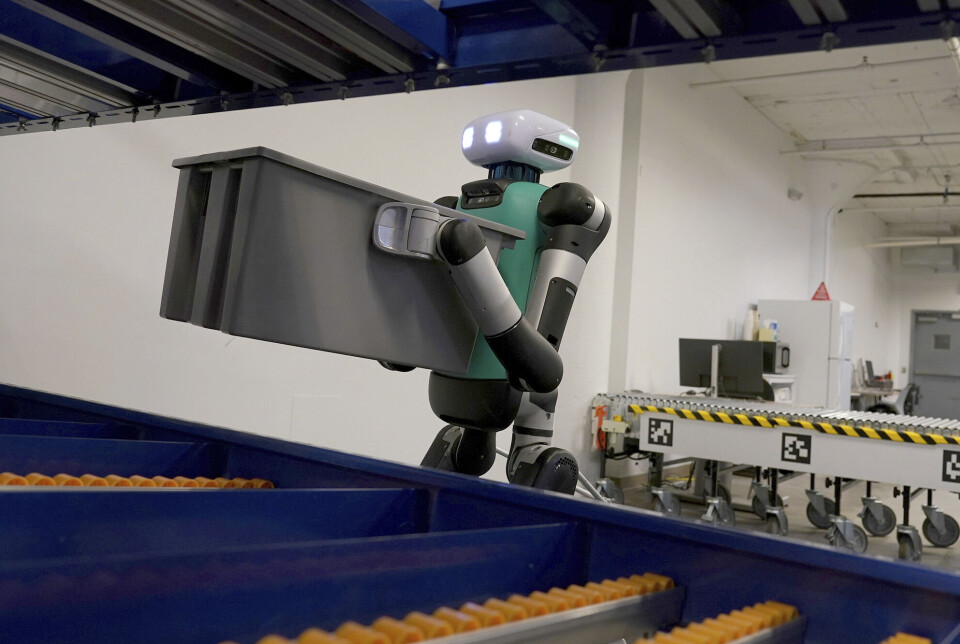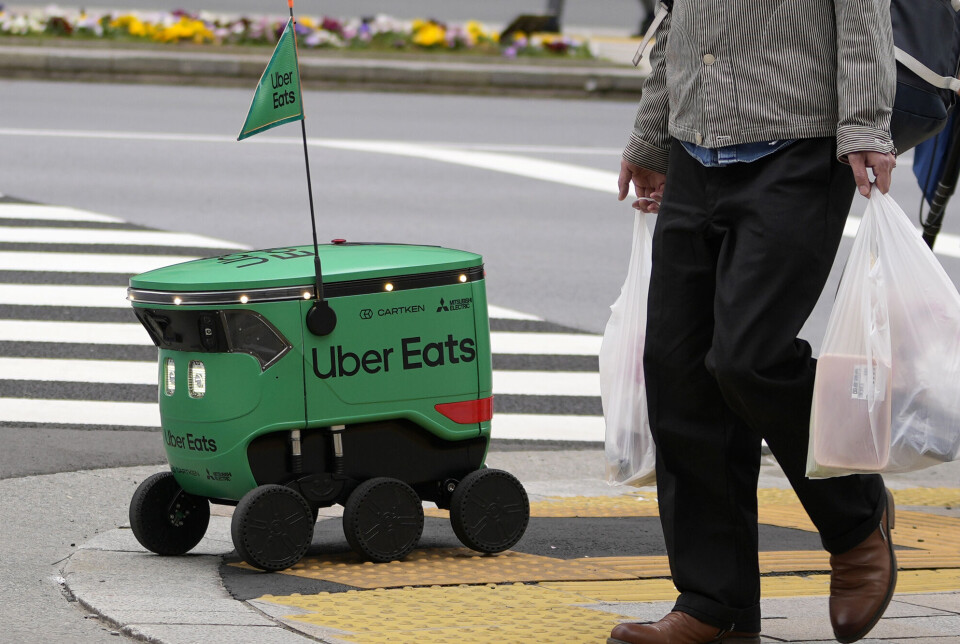Artificial
intelligence and robots could take over more and more tasks in the future.
Technology may play a greater role in manual labour, office work, the healthcare sector, and
possibly transportation.
What happens if
there are no longer enough jobs for everyone? Researchers working with questions of ethics and technology share their thoughts.
Full automation in warehouses
Henrik Skaug
Sætra believes robotics and artificial intelligence will lead to changes
in the labour market.
However, there is a difference between talking about human-like
robots, artificial intelligence, or industrial robots, he says.
Sætra is an
associate professor in the Department of Informatics at the University of Oslo.
“Conventional industrial robots already replace many workers by enabling new types of warehouses with fully automated solutions,” he says.
For example, Norwegian company AutoStore has developed a robotic system for picking goods in warehouses, where most processes are automated. Amazon also operates fully automated warehouses and storage facilities, Sætra points out.
“The more of these automated warehouses we have, the fewer jobs there will be in this sector,”
he says.
Expensive and impractical?
Some companies
are also trying to develop humanoid robots capable of performing manual labour.
Sætra is more sceptical about their potential to replace human workers.
“I think that more mundane robotics has a far greater potential to disrupt the labour market
than humanoid robots,” he says.
Sætra believes human-like
robots are expensive and impractical for tasks like fetching and transporting items.
But they do have
one big advantage: They can navigate environments designed for humans.
“Most of the working
landscapes we’ve created are designed for people with two arms, legs, and a
human physique. Humanoid robots
are therefore interesting for tasks that don’t involve altering the environment,” he says.
Nonetheless, we are far from having mass-produced, affordable human-like robots capable of replacing people, Sætra emphasises.
Additionally, humans can adapt to new tasks much faster than a robot.

Home robots are a possible future
Humanoid robots could eventually become available for ordinary people to purchase for their
home.
“I don’t think it’ll disrupt the labour market, as we don’t have many domestic servants in Norwegian homes today,” says Sætra.
“The technology
will probably also be very expensive. It’ll be quite some time before average people can afford a personal home assistant, a robot that can cook or take care of children.”
These types of
applications are interesting, and it’s not unrealistic to think we might achieve this in the not-too-distant future, Sætra adds.
“If you have a
lot of money and are willing to tolerate that these robots are far from
perfect, then I think it’s a fun and exciting prospect,” he says.
Google and
DeepMind have created the robot Aloha. It does not look like a human but is
trained to perform tasks at home. Videos show the robot cooking, cleaning, and
cleaning.
Artificial intelligence threatens other types of jobs
Services based
on artificial intelligence can be accessed on a PC.
Opinions are
divided on how big an impact this will have on the labour market, according to Sætra.
“A lot of
people think the amount of hype around AI is extreme and is going to die down
soon. Others are really
optimistic and think that AI will make people much more productive and take
over the jobs of some people,” he says.
One of the
tasks AI can perform is answer customer questions.
“We don’t yet have
many concrete examples of companies that have managed to replace human workers
with AI in a solid and reliable way,” says Sætra.
However, he
still believes that artificial intelligence has the potential to disrupt and
change things in the labour market.
Warehouse
workers aren’t the ones who will disappear.
“Here, we’re
talking about consultants at large consulting firms being outcompeted,” says
Sætra.
The compilation and analysis of large amounts of information will increasingly be automated.
Thinks desk jobs will disappear before craftsmanship
Atle Ottesen
Søvik is on the same page. He is a professor at MF Norwegian School of
Theology, Religion and Society.
It is not
necessarily the jobs of people with less education that are most at risk in the
future labour market, where artificial intelligence will be able to write, make
films, mark tests, and other things.
Søvik teaches
ethics and technology with a focus on philosophy of religion.
He believes it is true that robots can replace manual labour that is simple, repetitive, and requires little human contact.
“But I think a
lot of the jobs requiring craftsmanship will last much longer than some desk
jobs,” he says.
When it comes
to humanoid robots, Søvik says that physical tasks are still difficult for
them.
“In the last
ten years, artificial intelligence has progressed at breakneck speed on
theoretical tasks,” he says.
Physical tasks
are progressing more slowly. The robots are getting a little better at climbing stairs or going a little faster.
We make a lot of adjustments so that the robots we have can do their job. We adapt the garden or living room for the lawnmower and vacuum cleaner robots, for example.
Still a lot that we want people to do
When jobs have
disappeared in the past, many new ones have appeared.
Can we get to a
point where robotics and artificial intelligence take over so many tasks that
there is no longer enough work for everyone?
“It’s always
been the case that as technology has evolved, people have taken on new jobs. But what if robots take all the jobs? There are a
lot of reasons to work beyond getting a salary, like self-realisation,
community, contributing, and getting recognition,” says Søvik.
Whether
everyone will be able to continue to work like before becomes an economic
question. Søvik believes that as long as there is the money to pay for it,
there will be a lot of jobs that we will still want people to do.
“Maybe AI can create
nice songs, but we still prefer when a human being sings about heartbreak.
Robots may be able to cook good food, but there can still be something special
about a human having made it,” he says.
In education, law, and police work, there’s a lot that we think is important for people to do,
says Søvik.
“I think there is enormous potential for a lot more compassionate care – the police could work
more preventively, teachers could help individual students, and social workers could
follow up with individuals more closely. There are tons
of jobs out there. The question is whether we can find a way financially to pay
everyone,” he says.

Political governance required
If it turns out
that robots can eventually do everything, people might be able to receive a
universal basic income, says Søvik.
The robots will
be able to increase task efficiency and make it possible for the state to
create tax schemes that allow everyone to benefit in the form of increased welfare.
“I feel
positive about the potential. But political governance will be needed due to so
much rapid change. Trade unions will become important,” he says.
Jobs that only involve
efficiency, like handling goods and some administrative tasks, might disappear.
“But there’ll still
be plenty of things that we enjoy doing and that we want people to do,” says
Søvik.
Could increase inequality
A possible
danger is that more robots in the labour market could lead to greater inequality, says Henrik Skaug Sætra.
“If you have
capital, you can just buy what you need to produce the goods you intend to
sell. Then you’re
not dependent on other people who require a salary. The available capital will be
less evenly distributed,” he says.
Considering a
universal basic income or taxing robots might be a solution, according to Sætra.
Marija
Slavkovik raises the same issue. She heads of the Department of Information Science
and Media Studies at the University of Bergen and researches artificial intelligence and ethics.
The fear that humans will be replaced by technology is something that often comes up, she says.
“The reality is
that automation improves human tasks rather than totally replacing them. Ideally,
this leads to a better experience and added value for everyone,” she says.
“The
pessimistic scenario envisions people being inadequately replaced by machines
that do a worse job and provide a worse experience.”
Since
production capacity increases while the need for labour decreases, this could
lead to greater inequality.
“The money
earned from the increased production capacity would be kept by business owners, or parts of the money could be redistributed in society,” she says.
More leisure time
There can
certainly be positive aspects to artificial intelligence and robotics taking
over more work tasks, Henrik Skaug Sætra believes.
“If we achieve redistribution, we will all be able to benefit from the increased efficiency
and productivity,” he says.
Robots can do
the boring, dirty, and dangerous jobs.
“Then people can live good lives without working as much. Clearly, this could be good for
people,” he says.
Having a job is
important in several ways, says Sætra. He does not think people will stop
working, but that they will be able to work a little less.
———
Translated by Ingrid P. Nuse
Read the Norwegian version of this article on forskning.no

